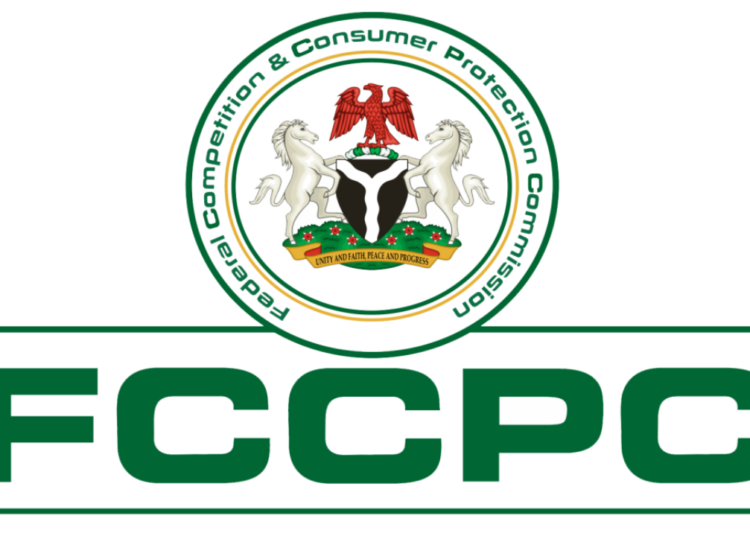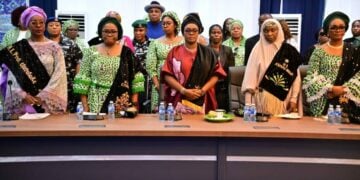Stakeholders have applauded the Competition and Consumer Protection Tribunal sitting in Abuja for dismissing the appeal filed by Meta Platforms Inc, the parent company of Facebook and WhatsApp, challenging a $220 million penalty imposed on it by the Federal Competition and Consumer Protection Commission (FCCPC).
The three-member panel, led by Justice Thomas Okosun, held in its decision that the FCCPC complied with prevailing laws, discharged its mandate, and exercised its powers within the confines of the 1999 Constitution (as amended).
The commission imposed the penalty on Meta on July 12, 2024, based on a joint report that alleged multiple, repeated and ongoing violations of the Nigeria Data Protection Regulation 2019 (NDPR).
Expressing his satisfaction with the landmark judgment, FCCPC executive vice chairman/CEO, Tunji Bello thanked the commission’s legal team for their exceptional diligence and forensic skills in gathering evidence and presenting their arguments.
He reiterated the FCCPC’s unwavering commitment to championing the rights of Nigerian consumers and ensuring fair business practices in the country, in accordance with the FCCPA (2018) and consistent with the Renewed Hope Agenda of President Bola Tinubu.
Reacting to the judgement, the executive director, Journalists For Democratic Rights, Adewale Adeoye said, “The judgment is an indication of the interconnectivity of justice across nations. It clearly shows that global companies operating in Nigeria are not above the local laws. There have been a series of legal disputes where Nigerian companies were taken to court in the US and UK. The judiciary in those countries protect the rights of its citizens globally. The Nigerian judiciary needs to wake up to that responsibility.
“Any international company whose operations have direct bearing on the lives of Nigerians must also be guided by Nigerian domestic laws.
“The judgment is not just a victory for the consumer protection agency but also a triumph for end users of global business activities in Nigeria.
“In this case, the privacy of Nigerians has been protected and defended by the judiciary.
“However, the FCCPC should spread its frontiers to ensure the protection of millions of Nigerians whose rights are abused and trampled upon by local and international business groups. It should not be limited to Meta Platforms alone.
“The FCCPC should understand that many companies operating in Nigeria have no respect for the rights of Nigerians except to exploit and dehumanise them. The FCCPC needs to rise to the challenges of corporate exploitation which is a trend in Nigeria.
“It shows that the FCCPC potentially had a strategic role to play in sustainable development and human rights protection.”
In his reaction, a tech policy analyst, Mr Jide Awe, hailed the tribunal’s verdict as “timely and just.”
Speaking with LEADERSHIP Weekend, Awe said the judgement sets an important precedent for tech accountability and demonstrates that “Nigeria is no longer a soft ground for digital exploitation.
“No one is above the law, no matter who you are. Meta and WhatsApp were given full opportunity to defend themselves. If they are dissatisfied, the law still allows them to appeal. But they should not think they can throw their weight around.”
He urged Meta to seek common ground with the FCCPC and NDPC rather than consider exiting Nigeria, a move he described as shortsighted. “Leaving Nigeria would be cutting off their nose to spite their face. This is one of the largest and fastest-growing digital markets globally. It would be unwise to walk away from that,” he warned.
Awe added that similar penalties have been imposed on big tech firms in other regions, including Europe, for comparable violations, noting that “the law is finally catching up with fast-moving technology.”
He also called on the FCCPC to expand its public awareness campaigns, especially using local languages, to help consumers understand their digital rights in a rapidly evolving tech ecosystem.
“Most people aren’t aware of what’s happening behind the scenes when they use digital platforms. The FCCPC must get more creative in sensitising them. And consumers, too, must learn to think critically about the digital services they use,” he said.
Meanwhile, Meta is yet to respond to questions sent by LEADERSHIP Weekend correspondent as at the time of filing this report.
FCCPC had claimed that Meta engaged in abusive and invasive practices against data subjects/consumers in Nigeria, such as collecting personal data without consent.
Additionally, it alleged that Meta discriminated against Nigerian data subjects by treating them disparately compared to users in other jurisdictions.
However, in their appeal, the social media platforms argued that the FCCPC’s $220 million penalty should be overturned because it is a vague directive, unjustifiable data-sharing order and procedural error.
The company claimed that FCCPC did not consider the operational complexities inherent in the WhatsApp service, thereby imposing an impossible burden on the appellants.
Meta further submitted that Nigerian users are free to reject its privacy policy by declining to accept WhatsApp’s Terms of Service and not using the WhatsApp service.
The appellants also argued that the FCCPC denied them a fair hearing by imposing a hefty penalty without allowing them to understand how the penalty would be calculated and to respond to the calculation of the proposed amount.
However, in its decision, the tribunal affirms the commission’s authority and actions in nearly all the contested issues.
The tribunal also found that the multiple actions by WhatsApp and Meta, for which the commission made findings of violations, were correctly identified and that the commission did not err in making those findings.
The tribunal upheld the main aspects of the FCCPC’s Final Order and imposed an administrative penalty of $220 million against Meta Platforms Incorporated and WhatsApp LLC. Additionally, the tribunal awarded $35,000 to the FCCPC to cover the investigation costs.
Meta’s legal team was led by Prof Gbolahan Elias (SAN), while the FCCPC’s legal team was led by Mr Babatunde Irukera.
The case arose from a 38-month joint investigation initiated by the FCCPC and the Nigeria Data Protection Commission (NDPC) into the conduct, privacy practices and consumer data policies of Meta Platforms and WhatsApp.
Dissatisfied with the order, Meta and WhatsApp appealed to the tribunal, challenging the legal basis and the commission’s findings.
While ruling on Meta’s appeal, the tribunal validated the commission’s investigative procedures and processes.
The tribunal resolved Issues 1 to 7 predominantly in favour of the FCCPC, rejecting the appellants’ objections to the commission’s findings, orders and legal authority.
One of the key matters (Issue 3), which alleged a breach of the right to a fair hearing, was determined in favour of the commission. The tribunal confirmed that the FCCPC fully satisfied its quasi-judicial responsibilities by providing the appellants ample opportunities to respond. It concluded that there was no violation of constitutional due process.
Regarding Issue 4, which questioned the commission’s data protection and privacy powers, the tribunal ruled that the FCCPC acted within its statutory mandate. It reaffirmed the commission’s authority under Section 104 of the FCCPA to regulate competition and consumer protection, even within regulated industries.
On Issue 5, which challenged the commission’s findings about Meta’s privacy policies, the tribunal also decided in favour of the FCCPC saying that it found no error in the commission’s conclusions and held that the privacy policy violated Nigerian law.
While Issue 7 was largely resolved in favour of the commission, the tribunal set aside Order 7 of the Commission’s Final Order, stating that it lacked sufficient legal basis.





